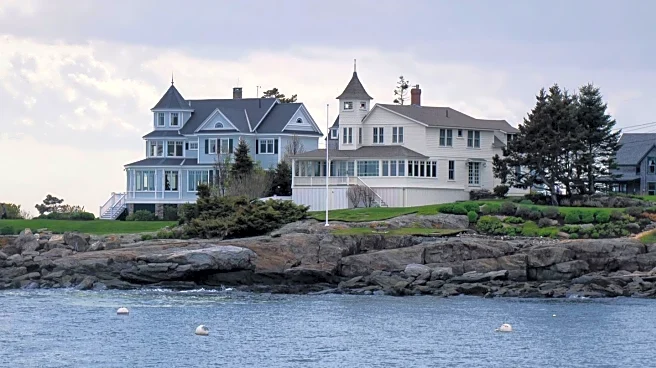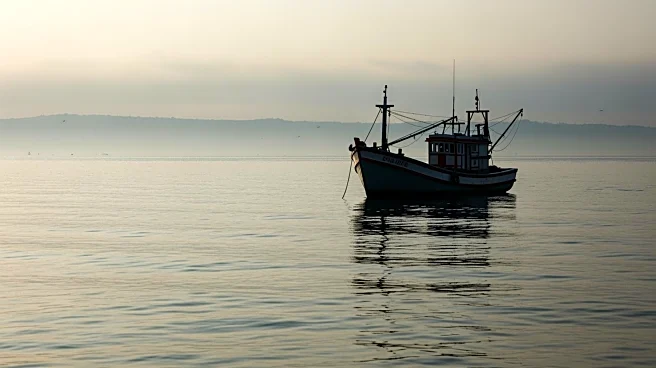What's Happening?
Maine continues to be a sought-after destination for travelers seeking the quintessential New England experience. According to Mary Cropper of Black Tomato, a luxury travel company, Maine's brief summers offer an exclusive allure with its picturesque landscapes and charming coastal towns. The state is known for its clapboard houses, sandy lanes leading to secret beaches, and iconic lobster rolls. Kennebunkport and Ogunquit are highlighted as prime locations, with Kennebunkport being home to the Bush family's summer compound and offering upscale accommodations like the White Barn Inn. Portland, Maine's capital, is recommended for its quirky charm and historical sites such as the Portland Head Light. Northern Maine, particularly around Acadia National Park, is noted for its rural hideaways and celebrity visitors, adding to its appeal.
Why It's Important?
Maine's tourism industry benefits significantly from its reputation as a premium summer destination. The influx of visitors supports local businesses, from hotels and restaurants to artisanal shops. The state's natural beauty and cultural heritage attract both domestic and international tourists, contributing to economic growth. The emphasis on exclusive experiences and high-end accommodations positions Maine as a competitive player in the luxury travel market. This focus on tourism not only boosts the local economy but also preserves the state's unique cultural and environmental assets.
What's Next?
As the summer season draws to a close, Maine's tourism industry may see a shift in focus towards attracting year-round visitors, including remote workers who have moved to the area during the pandemic. This could lead to increased investment in infrastructure and services to accommodate a more permanent population. Additionally, the state may continue to promote its winter attractions, leveraging its natural beauty to appeal to tourists seeking a different seasonal experience.
Beyond the Headlines
The growing interest in Maine as a year-round destination could have long-term implications for the state's demographic and economic landscape. The influx of remote workers and permanent residents may drive changes in housing, education, and local governance. Furthermore, the emphasis on sustainable tourism practices could enhance Maine's reputation as a leader in environmental conservation and responsible travel.










